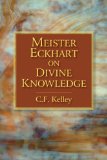The World’s Greatest Unpublished Spiritual Book
Page 4 of 6 pages « First < 2 3 4 5 6 > Last » - Full Article
The action in The Scapegoat Book unfolds on a single day on the grounds of the State Mental Facility at God’s End to which Evelyn, in The Mummery Book, had Raymond committed after the latter refused to play the role of figurehead in Evelyn’s self-aggrandizing religious charade. Wandering in the forest at Dreamer Circle, Raymond had chanced upon Evelyn teaching disciples a tissue of consoling religious lies purportedly based upon Raymond’s early life story, but which were in fact an utter falsification of his actual life and teachings. Caught by Raymond in the act of selling his credulous acolytes promises of an impossible, vicarious salvation, Evelyn quickly tries to recover by programing the young sage into his act, but then goes on to alternately mimick and mock him. Raymond’s unwillingness to acquiesce to the Great Fool’s expropriation and gross revision of his own true teaching seals his fate. He is to be made the scapegoat for Evelyn’s and his followers’ refusal to accept Raymond’s gift of Realization by Divine Grace—which refusal is the inevitable consequence of their unwillingness to pay the spiritual renunciate’s coin of authentic devotion, self-discipline, and constant attendance upon perfect knowledge that is its necessary daily price.
Although perfectly well aware that Evelyn would prefer him dead so that he can return to his business of teaching his “Raymondite” revision of the great sage’s uncompromising way of perfect knowledge and self-renunciation, in The Scapegoat Book the now incarcerated Raymond nonetheless accepts Evelyn’s “gift” of a poisoned apple and in return counters his captor’s every delusion and lie with the consummate teaching of Consciousness Itself and the consummate Way of devotional love and service to the one who embodies and transmits It—the adept’s Grace being the inner teaching of any religion worthy of the name. All this “mummery” is duly witnessed and recorded by Meridian Smith, the always delightfully attired divine angel who miraculously reappeared throughout The Mummery Book whenever the questing young Raymond Darling needed initiatory guidance and blessing. Here Meridian merely plays the role of fair Witness as Raymond expends his own final life’s-breath in a futile effort to move his “super-criminal” tormentor to abandon his wanton path.
The anthropologist Rene Girard has offered us a far-reaching and compelling explanation of the scapegoat phenomenon, placing it at the very center of human psychology, culture, and religion. Through his study of the novels of some of western literature’s greatest literary geniuses—the likes of Cervantes, Shakespeare, Stendhal, Dostoyevsky, Proust, and Joyce—he teased out the common theme that human desire is fundamentally imitative at its core, and that human passion is utterly bound up in jealous and envious rivalries between presumed peers. His argument here is akin to the master-slave dialectic expounded by Hegel in his Phenomenology of Mind, which, as relayed through the twentieth century philosopher Alexander Kojève, was to have enormous influence on postwar Continental thought, especially psychoanalysis. That human relations are mostly a dramatized struggle for prestige is now a settled fixture of contemporary letters. Jacques Lacan, the globally influential French psychoanalyst who absorbed Hegel’s dialectic into that discipline, argued that our self-image is forged in a circumstance of interpersonal imitation and rivalry, marking as aggressive at its core our quest for identity and our perpetual search for an impossible (because already lost) object. The psychoanalytic understanding of the human psyche was fleshed out by the work of the influential British child analyst Melanie Klein, who revealed that the infant’s phantasy life often becomes a tempest of devouring, despoiling, envious rage.
Girard’s analysis of the scapegoat game complements what both Kierkegaard and Nietzsche found to be the defining characteristic of egoity in the modern age: the dismissive envy, or ressentiment, that however unwittingly drives our collective determination to rid human culture of all superior men and women. Ressentiment is the “leveling” impulse whereby the common man attempts to assuage his mortal anxiety by assuring himself that there really is nothing great to Realize and no one made great by Realizing it. Mockery, slander, and the other tools of the hypocritical ego are its primary weapons. In the words of the German philosopher Constantin Brunner, “Every age knows so much about great men as to know that none of them is one. No age has had a prophet whom it wanted, whom it did not regard as a madman . . . , whom it did not regard as absurd, depraved, malign – as evil incarnate.” At least the people of past centuries paid their saviors the compliment of open opposition. Speaking of the Athenian rejection of Socrates, Kierkegaard pointed out that “the outstanding man was exiled, but everyone understood how dialectical the relationship was, ostracism being a mark of distinction.” He noted that in our more indolent era, in which people are “cowardly and vacillating,” the force of human abstraction permits us to treat the superior man as merely ridiculous and worthy only of being ignored.
Page 4 of 6 pages « First < 2 3 4 5 6 > Last » - Full Article
Pages {pagination_links}









